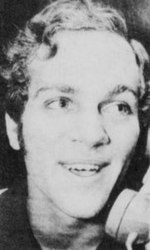David Clyde, Date of Birth, Place of Birth
TweetDavid Clyde
American baseball player
 Date of Birth: 22-Apr-1955
Date of Birth: 22-Apr-1955
 Place of Birth: Kansas City, Kansas, United States
Place of Birth: Kansas City, Kansas, United States
Profession: baseball player
Nationality: United States
Zodiac Sign: Taurus 
About David Clyde
- David Eugene Clyde (born April 22, 1955) is a former left-handed Major League Baseball pitcher who played for five seasons with the Texas Rangers (1973–1975) and Cleveland Indians (1978–1979).
- He is noted for his once promising baseball career, which ended at age 26 because of arm and shoulder injuries. Billed as the next Sandy Koufax, Clyde had a stellar high school career at Westchester High School.
- He was drafted with the first overall pick in the 1973 Major League Baseball draft.
- The Rangers planned to have Clyde pitch his first two professional games in the major leagues before moving him down to the minor leagues, but Rangers owner Bob Short decided to keep him in the roster for monetary purposes, where he had a 5.01 earned run average in 18 starts.
- Journalists criticized the Rangers for promoting Clyde too soon, and after an uneventful 1974 campaign, he developed shoulder trouble and was sent down to the minor leagues in 1975, where he pitched three seasons.
- He was traded to the Cleveland Indians in 1978, and played two seasons before being demoted.
- Clyde attempted to make a comeback with the Houston Astros but was unsuccessful. Clyde's career made him the "poster-boy" for bringing up young players prematurely and dealing with arm injuries.
- He was named by journalist Randy Galloway as among the worst cases of "mishandling" a young player in baseball history.
- He is considered by many as a savior of the Texas Rangers franchise because of the significant attendance boost that Clyde's hype brought to the team, preventing it from a possible bankruptcy or American League takeover.
Read more at Wikipedia

